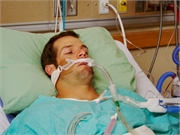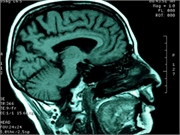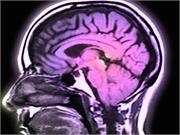Tag: Traumatic Brain Injury
Factors ID’d in Withdrawal of Life Support in Severe TBI Patients
Decision to withdraw life-supporting treatment influenced by race, region, insurance status
Drop Seen in Rate of Sports and Recreation-Related TBI in Children
2012 to 2018 saw decrease in SSR TBI ED visits for children, mainly due to drop in contact sports-linked TBI
Neurofilament Light Chain Levels Elevated After Repetitive TBI
Elevated exosomal, plasma levels of NfL also linked to chronic PCS, PTSD, depressive symptoms
Quality Improvement Effort Cuts Blood Clots in Brain Injury Patients
Prophylactic anticoagulation protocol improves patient outcomes
Sports Concussion Recovery May Be Slower Than Thought
At two weeks postinjury, less than half of patients are recovered, regardless of age
CDC: Fall-Related TBI Deaths Increasing Among U.S. Residents
17 percent increase found in national age-adjusted rate of fall-related TBI deaths from 2008 to 2017
Soldiers With Traumatic Brain Injury at Risk for Mental Illness
Moderate or severe traumatic brain injury in combat tied to higher risk for range of mental health disorders
Antipsychotic Initiation Ups Risk for Head Injury, TBI in Alzheimer Disease
TBI injury risk up for quetiapine versus risperidone users
CDC: Nearly Half of TBI-Related Deaths Categorized as Intentional
During last 10 years, suicide surpassed motor vehicle crashes as leading category of TBI-related death
Optic Nerve Ultrasound May ID Increased Intracranial Pressure
Optic nerve ultrasonography has high sensitivity and specificity for traumatic, nontraumatic brain injury














